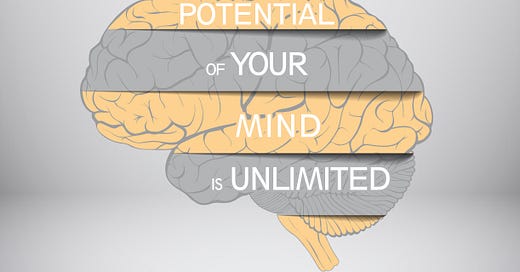Manifesting Divine Potential: A New Thought Perspective on the Gospel of Matthew
Essay
In the Gospel of Matthew, we find a profound invitation to awaken to our divine potential and manifest it in our lives. This ancient text, rich with teachings attributed to Jesus Christ, resonates deeply with the core principles of New Thought philosophy.
Let us explore how the themes of unity with the divine, the power of thought and intention, and the transformative nature of love and forgiveness are articulated in Matthew’s Gospel through the lens of New Thought.
Unity with the Divine: Embodying Christ Consciousness
At the heart of Matthew’s Gospel lies the concept of unity with the divine, embodied in the life and teachings of Jesus Christ. The genealogy and birth of Jesus underscore his divine lineage, symbolizing the potential for each individual to realize their inherent divinity. New Thought teaches that we are all expressions of the divine, and like Jesus, we can awaken to our Christ Consciousness—the awareness of our spiritual essence and connection to the Source.
The Power of Thought and Intention: Aligning with Divine Principles
In the Sermon on the Mount, Jesus imparts teachings that illuminate the power of thought and intention. The Beatitudes, for instance, encourage attitudes of humility, mercy, and purity of heart as pathways to blessedness. This resonates deeply with New Thought’s emphasis on the creative power of thought. Jesus goes further to teach that our inner states of consciousness—such as love, forgiveness, and faith—are not only foundational to our spiritual growth but also shape our external reality. "Ask, and it will be given to you; seek, and you will find; knock, and it will be opened to you" (Matthew 7:7) exemplifies the Law of Attraction—a fundamental principle in New Thought philosophy, affirming that our thoughts and intentions manifest in tangible outcomes.
Inner Transformation and the Kingdom of Heaven: Realizing Spiritual Potential
Throughout Matthew’s Gospel, Jesus speaks of the Kingdom of Heaven as both a present reality and a future promise. New Thought interprets this kingdom as the realm of divine consciousness accessible through inner transformation. Parables like the Mustard Seed and the Leaven illustrate how small, inner changes—like seeds planted in fertile soil—can grow into expansive spiritual realities. By cultivating qualities such as compassion, justice, and peace within ourselves, we contribute to the manifestation of the Kingdom of Heaven on earth.
Love and Forgiveness: Liberating the Soul
Central to Jesus’ teachings in Matthew is the transformative power of love and forgiveness. He teaches that love is the greatest commandment, encompassing love for God and love for one another (Matthew 22:37-40). In New Thought, love is viewed as a universal principle—an expression of divine essence within each of us. The practice of forgiveness, exemplified in the Lord’s Prayer and the parable of the Unforgiving Servant, liberates us from the bondage of resentment and opens pathways to healing and spiritual growth.
Demonstrating Divine Principles: Living as Embodiments of Truth
Jesus’ life serves as a model for embodying divine principles in daily life. His actions—such as healing the sick, feeding the hungry, and challenging oppressive systems—reflect a commitment to justice, compassion, and ethical behavior. In Matthew 23, Jesus exhorts his followers to live authentically, aligning their outer actions with their inner convictions. This call to integrity resonates deeply with New Thought philosophy, which encourages individuals to live as embodiments of truth and divine love.
Conclusion: Awakening to Our Divine Potential
The Gospel of Matthew, through its teachings and narratives, calls us to awaken to our divine potential and manifest it in the world. It invites us to embrace unity with the divine, harness the power of thought and intention, cultivate inner transformation, embody love and forgiveness, and live as authentic expressions of divine truth. In doing so, we not only enrich our own lives but also contribute to the realization of a more just, compassionate, and harmonious world—a world where each individual is empowered to manifest their highest spiritual potential.
In the words of Matthew’s Gospel, let us seek first the Kingdom of Heaven within ourselves, knowing that as we awaken to our divine nature, we contribute to the co-creation of a world where love reigns supreme and all beings live in harmony and peace.
More at: www.MichaelCorthell.com




